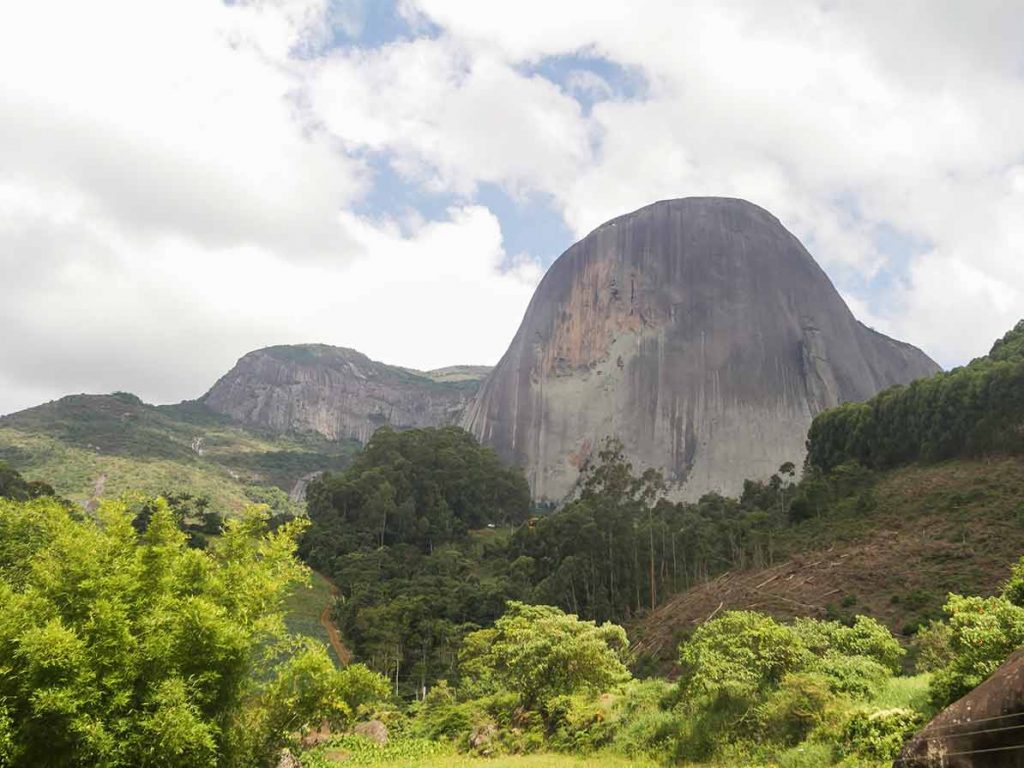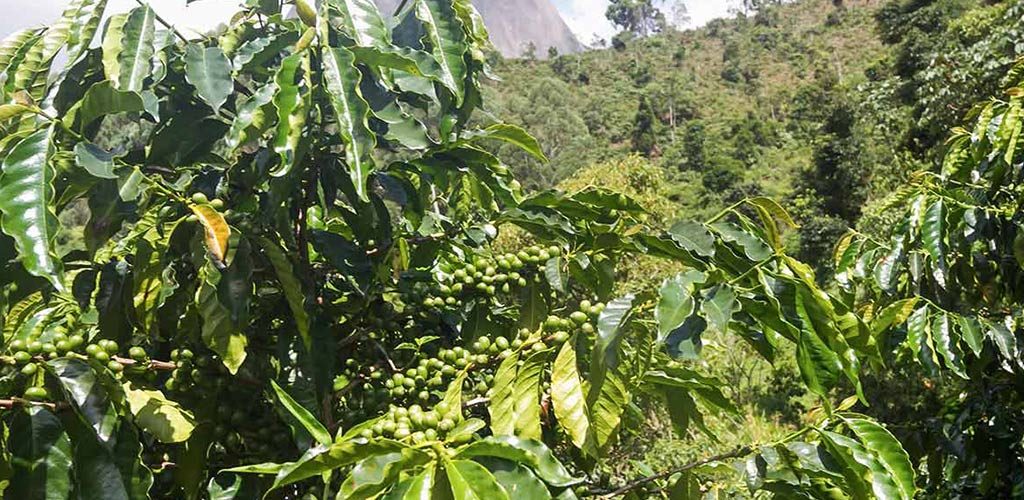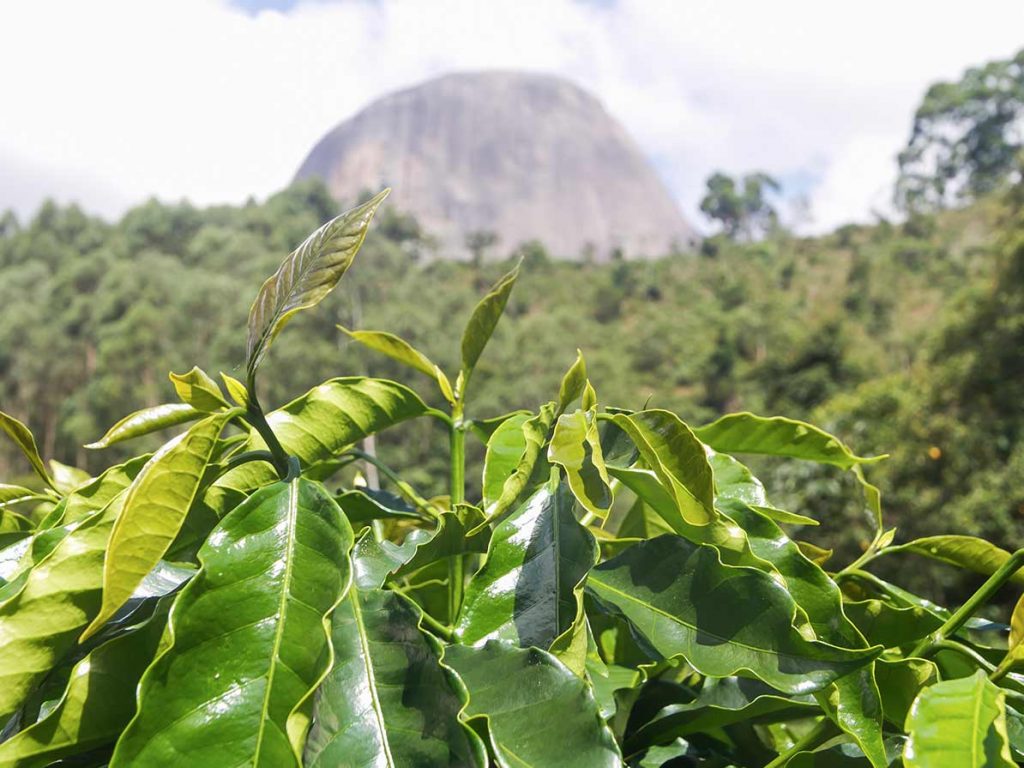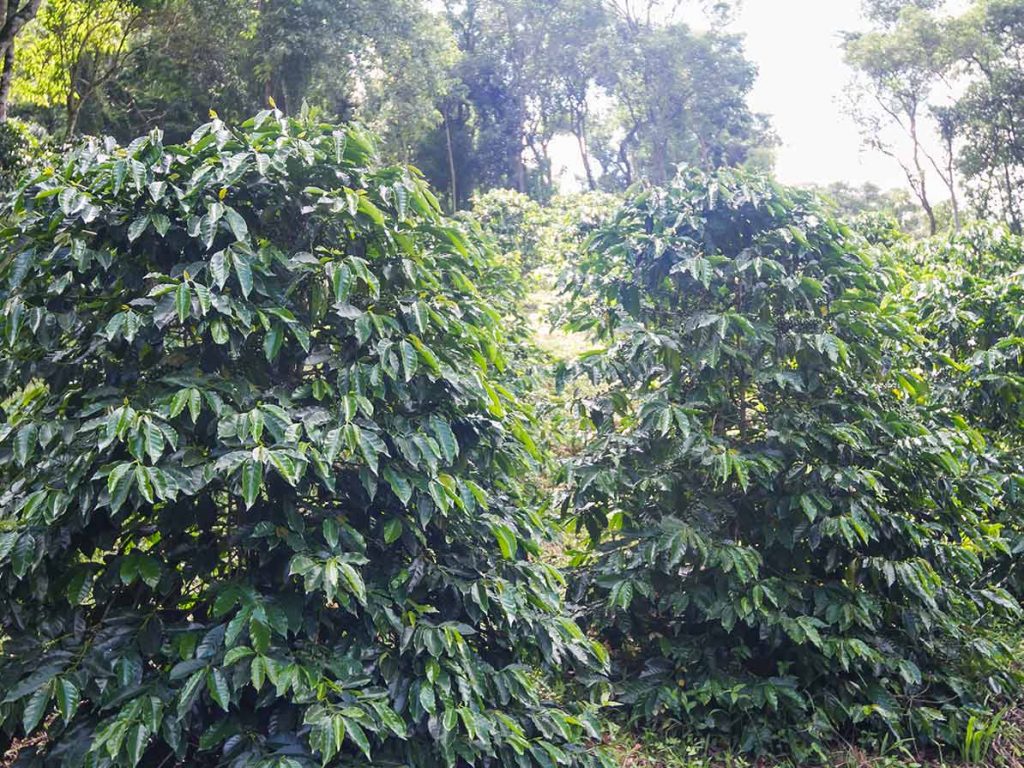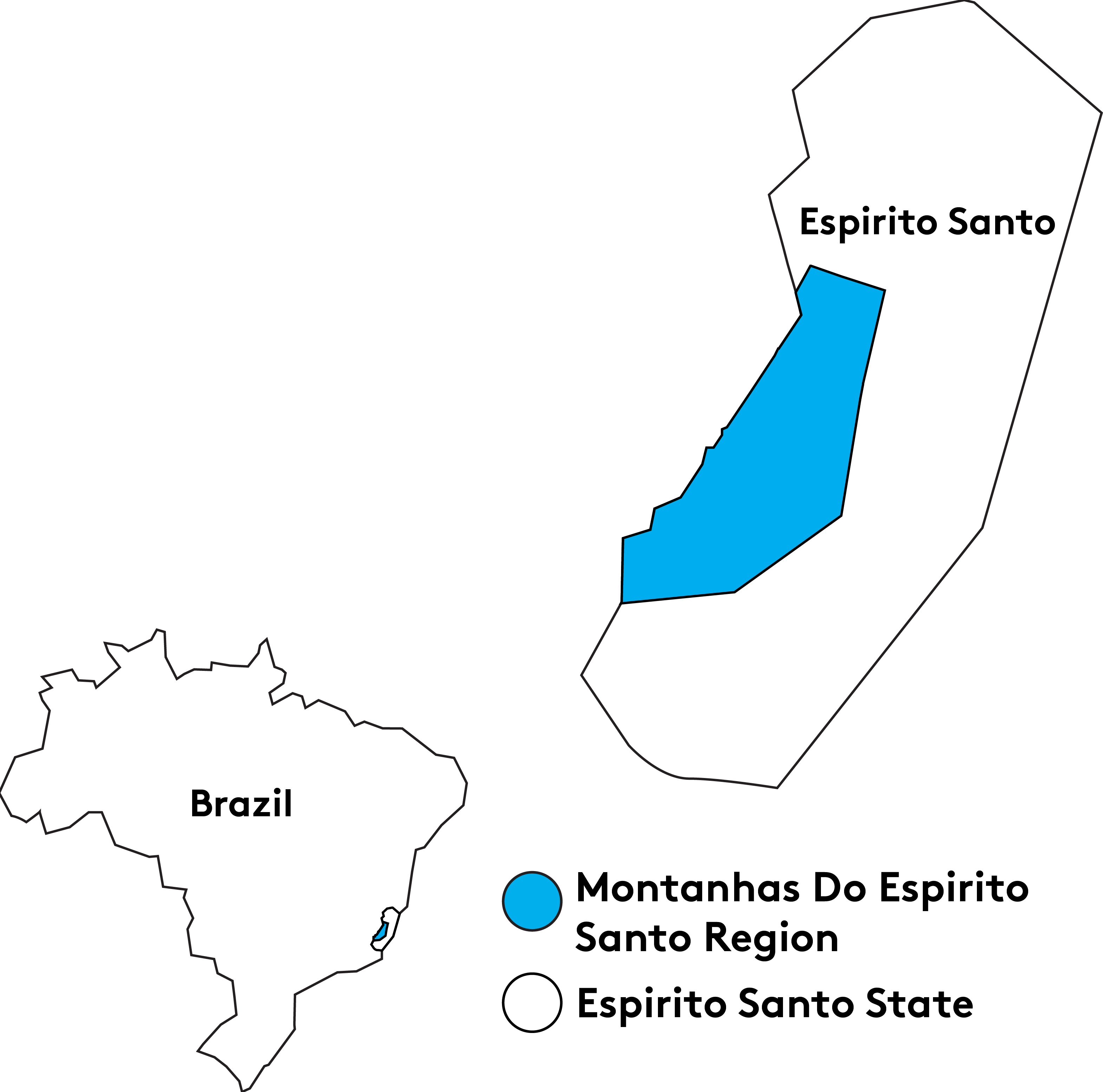Named for the nearby Pedra Azul mountain, this Pedra Azul coffee comes from the uncle and nephew coffee producing team of Pedro and Jeverson Pin and their farms, Fazenda Córrego Capivara and Sítio Sombra do Cedro. The microclimate surrounding Pedra Azul makes for unique coffees that are notable for their aroma and flavor, often offering bright acidity, full body, and a fruit-like sweetness. Coffee production in the family stretches back to Jeverson’s great-grandfather, Mr. Augustim Pin, making Pedro and Jeverson the third and fourth generations of coffee producers to work the land in their family.
Pedro and Jeverson began their partnership in 2002, though they’ve worked closely together for many more years. Jeverson grew up learning from the work that his father and uncle did on the family’s farms, absorbing the knowledge that he would later apply to his own crops. The duo’s work together initially focused on improving the quality of their coffee and slowly increasing the size of their plantations. In 2009 their partnership would take a major step as Pedro acquired land from his sisters, expanding his Fazenda Córrego Capivara to cover 27 hectares of land with 21 hectares of planted coffee.
In 2014 Jeverson purchased his Sítio Sombra do Cedro in the Patrimônio do Ouro community, about one hour from his uncle’s farm. The farm covers 22 hectares in total and is planted with 11 hectares of coffee. Jeverson applies all of his collected knowledge in his pursuit of quality by planting new varieties and implementing new technologies in his production. Today, he hopes to set a good example for his young son, who already loves coffee as much as he does
This lot of Yellow Catucai underwent Pulped Natural processing. Catucai was developed as a cross between Icatu and Catuai. The first selection was made in 1988 by researchers at the then Brazilian Coffee Institute (IBC) in a population of the Red Icatu cultivar. After generations of breeding and selection in both Minas Gerais and Espírito Santo, the program gave rise to cultivars with red fruits and yellow fruits, then named Catucai.
